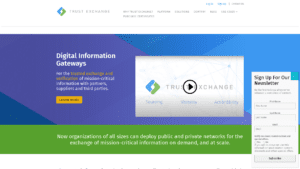
Enterprise resource planning systems (ERP) are complex and expensive software programs, usually used by large corporations or big businesses in order to streamline the day-to-day operations. But their affordability and complexity can be a major barrier for smaller businesses. Thankfully, open-source alternatives provide a low-cost, scalable option that provides many of the benefits of traditional enterprise resource planning (ERP) solutions. In this article, we’ll explore the key benefits of open-source ERP systems, plus their potential challenges and how they compare to traditional ERP solutions.
Introduction to Enterprise Resource Planning
Enterprise resource planning (ERP) systems are a critical part of any organization. They are comprehensive solutions that enable businesses to manage their resources, processes, and accounts more effectively and efficiently. ERP systems offer a wide-ranging set of tools for managing workflow, controlling costs, and improving performance. But in order for ERP to be truly effective, companies must select the right system for their particular needs. As such, it is important to understand the various types of ERP systems that are available and the advantages and disadvantages of each.
Open-source ERP Systems
Open-source ERP systems are a cost-effective alternative to traditional proprietary ERP solutions. Unlike proprietary systems, open-source ERP systems are free and can be modified to meet the needs of a business without the need for licensing fees or royalties.
Open-source ERP systems can be further divided into two main categories: those that are available as software-as-a-service (SaaS) and those that are self-hosted. SaaS systems are hosted by third parties and can be more convenient than self-hosted solutions, but they usually have limited customization capabilities. Self-hosted solutions, on the other hand, give businesses the flexibility to configure and customize the software as they need.
Alternative Options to ERP Systems
When it comes to selecting the best ERP alternative for a business, there are many options to choose from. Some of the most popular open-source ERP systems are ERPNext, Oracle NetSuite, and Microsoft Dynamics 365.
ERPNext is considered to be one of the best free alternatives to Odoo and other ERP systems. It provides businesses with an easy-to-use platform that can be customized to suit their needs. Oracle NetSuite is another popular ERP solution that is similar to Odoo and provides a wide range of features and tools. Microsoft Dynamics 365 is another good option for businesses that need an Odoo alternative. This solution integrates with Office 365 and provides powerful project management capabilities.
Businesses should also consider alternative project management solutions such as OpenProject and Odoo Project when selecting an ERP system. Both OpenProject and Odoo Project provide cloud hosting, along with on-premises installations. However, Odoo does not offer the same level of customization as OpenProject.
Finally, businesses can explore ERP solutions such as Acumatica Cloud ERP, SuiteMaster, LeadMaster Solutions Group, BedrockData, and AccountEdge. Each of these solutions has its own unique features and benefits that can help businesses improve their operations.
Conclusion
ERP systems are an invaluable resource for companies looking to increase their operational efficiency and reduce costs. Open-source ERP systems are a cost-effective alternative to proprietary solutions, and there are many different options available depending on the specific needs of a business. Each of these solutions has its own unique features and benefits, but it is important for businesses to thoroughly research these options in order to select the right system for their organization.







